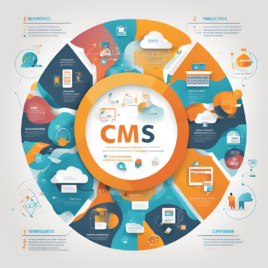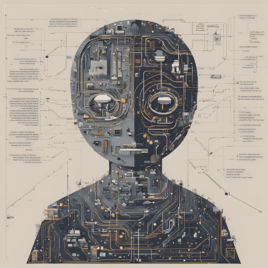Why AI is Emerging in the IT Industry & Its Advantages and Disadvantages
Artificial Intelligence (AI) is no longer just a futuristic concept; it has become a cornerstone of innovation across industries, especially in the IT sector. Its ability to analyze data, learn from patterns, and make decisions has redefined how businesses operate. But like any technology, AI comes with its own set of pros and cons. Let’s explore why AI is emerging in the IT industry and examine its advantages and disadvantages.
Why AI is Emerging in the IT Industry
The IT industry thrives on efficiency, scalability, and innovation—qualities that AI seamlessly complements. Here’s why AI is gaining traction:
- Data-Driven Decision Making:
With the exponential growth of data, AI’s ability to process and derive insights from vast datasets is invaluable. IT companies leverage AI to make informed decisions and optimize workflows. - Automation of Repetitive Tasks:
AI automates routine tasks like data entry, system monitoring, and bug detection, allowing IT professionals to focus on complex problem-solving and strategy. - Enhancing Cybersecurity:
AI is a game-changer in cybersecurity, identifying threats and vulnerabilities faster than traditional methods. Machine learning algorithms detect unusual patterns and potential breaches in real time. - Demand for Personalization:
In a customer-centric world, AI helps IT companies deliver personalized user experiences through intelligent chatbots, recommendation engines, and adaptive systems. - Cost Optimization:
By automating processes and improving accuracy, AI reduces operational costs, making it an attractive solution for IT firms looking to boost profitability.
Advantages of AI in the IT Industry
- Increased Efficiency:
AI accelerates IT processes, from software development to system maintenance, minimizing downtime and increasing productivity. - Improved Accuracy:
Unlike humans, AI systems don’t suffer from fatigue or emotional bias. This leads to more precise data analysis and decision-making. - Scalability:
AI-powered systems can handle increased workloads without requiring significant infrastructure changes, making them highly scalable for growing businesses. - Enhanced User Experience:
AI chatbots, virtual assistants, and personalized services improve customer interactions, leading to higher satisfaction and retention rates. - Predictive Analytics:
AI enables IT companies to predict trends, potential system failures, and user needs, giving them a competitive edge. - Cybersecurity Enhancements:
AI identifies vulnerabilities and prevents attacks by continuously learning from past incidents and adapting to new threats.
Disadvantages of AI in the IT Industry
- High Initial Investment:
Implementing AI systems requires significant upfront costs for development, hardware, and training. This can be a barrier for small businesses. - Job Displacement:
Automation of repetitive tasks can lead to job losses, particularly for roles requiring less technical expertise. - Ethical Concerns:
AI systems can unintentionally perpetuate biases present in training data, leading to ethical dilemmas and unfair outcomes. - Dependence on Data:
AI’s effectiveness relies heavily on the quality and quantity of data. Poor data can result in inaccurate predictions or decisions. - Complexity and Maintenance:
Developing and maintaining AI systems is complex, requiring specialized skills that aren’t always readily available. - Security Risks:
While AI enhances cybersecurity, it also opens new avenues for cybercriminals to exploit vulnerabilities in AI algorithms.
Balancing the Pros and Cons
The emergence of AI in the IT industry is a double-edged sword. On one side, it offers groundbreaking solutions to complex problems, but on the other, it raises challenges that need careful consideration.
To harness AI’s potential while mitigating risks, businesses must:
- Invest in employee training to adapt to AI-driven workflows.
- Focus on ethical AI practices to ensure fairness and inclusivity.
- Combine AI with human expertise to achieve balanced decision-making.
- Regularly update AI systems to address security concerns and evolving challenges.
Conclusion
AI’s emergence in the IT industry signifies a transformative shift, offering immense possibilities for growth, efficiency, and innovation. While it brings several advantages, it’s crucial to address its challenges thoughtfully.
As AI continues to evolve, its role in the IT industry will become even more significant. The key lies in leveraging its strengths responsibly while preparing for its potential drawbacks. In doing so, businesses can fully embrace the power of AI to shape a smarter, more efficient future.
What’s your perspective on AI’s impact on the IT industry? Share your thoughts in the comments below!




